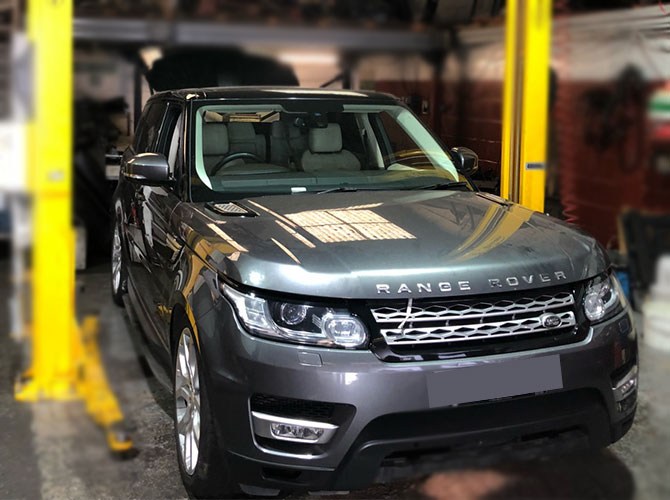Range Rover’s engines are integral to its reputation for luxury, rugged capability, and refined performance. Offering a variety of engine types from efficient hybrids to powerful V8s, Range Rover gives drivers the flexibility to choose an engine that aligns with their performance needs and lifestyle. This comprehensive comparison breaks down each engine option, highlighting their key features and ideal use cases.
Range Rover Engine Options Blending Power with Purpose
Range Rover’s engine options are crafted to meet diverse demands, providing drivers with choices that range from fuel-efficient to performance-focused. The main categories of Range Rover engines include V6, V8, hybrid, and electric variants, each offering distinct advantages depending on your preferences and driving conditions.
V6 Engines A Balance of Power and Economy
Overview of the V6 Engine
Range Rover’s V6 engines are ideal for drivers who want a blend of strength and fuel efficiency. Typically available in 3.0-liter formats, the V6 engines offer a middle ground between power and fuel economy, making them a popular choice for everyday driving and occasional off-road excursions.
Key Features of V6 Engines
Power Output
V6 engines deliver between 340 and 360 horsepower and provide up to 380 lb-ft of torque, making them well-suited for a variety of driving conditions.
Fuel Economy
These engines generally achieve a combined mileage of 18-22 MPG, offering better fuel efficiency compared to larger engines.
Smooth Drive
The V6 delivers a refined, comfortable drive that’s great for long road trips and daily commuting alike.
Pros and Cons of the V6 Engine
The V6 engine strikes an effective balance between performance and efficiency, making it versatile for various driving needs. However, for those seeking peak power for intense off-roading or towing, the V6 may fall short of expectations.
V8 Engines Power and Performance for the Thrill-Seeker
Overview of V8 Engines
For drivers looking for an extra dose of power and adrenaline, Range Rover’s V8 engines deliver. These engines, often available in 5.0-liter supercharged models, provide intense horsepower and torque, perfect for towing and fast acceleration.
Key Features of V8 Engines
Power and Torque
V8 engines offer 510-575 horsepower and up to 516 lb-ft of torque, enabling quick acceleration and the ability to handle rugged terrain with ease.
Speed and Acceleration
A V8-equipped Range Rover can accelerate from 0 to 60 mph in as little as 4.3 seconds, giving it the power profile of a high-performance SUV.
Towing Capacity
With a towing capacity of up to 7,700 pounds, V8 engines are ideal for those who frequently haul heavy equipment or trailers.
Pros and Cons of the V8 Engine
The V8 engine is the go-to for Range Rover drivers seeking superior performance. However, its lower fuel efficiency (around 15-18 MPG) may be a downside for daily city driving, as it is geared toward more intense performance needs.
Hybrid Engines Efficiency and Performance Combined
Overview of Hybrid Engines
Hybrid engines offer Range Rover drivers a compromise between power and eco-friendliness. By combining a traditional internal combustion engine with an electric motor, these engines enhance fuel efficiency and reduce emissions, making them suitable for city and highway travel alike.
Key Features of Hybrid Engines
Power
Hybrid engines provide around 398 horsepower, thanks to the combination of a 2.0-liter engine and an electric motor, delivering a solid power profile for daily drives.
Fuel Economy
Hybrids offer impressive mileage, often reaching around 40 MPG, making them more economical for drivers with long commutes or frequent city driving.
Environmental Benefits
Hybrid engines contribute to lower emissions, a valuable feature for eco-conscious drivers.
Pros and Cons of Hybrid Engines
Hybrid engines provide cost savings on fuel and reduce environmental impact. However, they do come at a higher initial purchase price and may lack the raw power of the V8, which can be a drawback for performance-focused drivers.
Electric Engines The Future of Range Rover
Overview of Electric Engines
Range Rover is now venturing into electric options, as they align with the global shift toward sustainable automotive technology. Though still limited, Range Rover’s electric models provide a peek into what fully electric luxury SUVs could offer.
Key Features of Electric Engines
Zero Emissions
Electric Range Rovers produce no emissions, aligning well with urban emission regulations and eco-friendly initiatives.
Quiet and Smooth Operation
Electric motors deliver a quiet, seamless ride, adding to Range Rover’s luxury experience.
Short-Range Efficiency
Current plug-in hybrid models can achieve around 19-30 miles on electric power alone, making them convenient for short city commutes.
Pros and Cons of Electric Engines
Electric engines offer significant environmental benefits and cost savings in fuel. However, limited electric range and reliance on charging infrastructure may not be ideal for long-distance drivers.
V6, V8, Hybrid, and Electric Engines Side-by-Side Comparison
When selecting the right Range Rover engine, drivers should consider factors like fuel economy, horsepower, towing capacity, and environmental impact. Here’s a comparison of key specifications:
| Engine Type | Horsepower | Fuel Efficiency | Best For |
| V6 | 340-360 HP | 18-22 MPG | Daily commuting and light off-road |
| V8 | 510-575 HP | 15-18 MPG | High performance and towing |
| Hybrid | ~398 HP | 40 MPG | Eco-friendly urban driving |
| Electric | ~105 kW motor | ~70 MPGe | Emission-free city commuting |
Tips for Range Rover Engine Maintenance
To get the most from a Range Rover engine, routine maintenance is crucial. Following these guidelines can help ensure your engine remains in peak condition:
Regular Oil Changes
This is vital to ensure smooth operation, particularly for high-power engines like the V8.
Use Quality Fuel
Using high-grade fuel can prevent build-up in the engine and maximize performance, which is especially important for turbocharged and hybrid models.
Coolant Checks
Proper coolant levels are essential to prevent overheating, a must for V6 and V8 engines in challenging climates.
Battery Care for Electric and Hybrid Models
Following recommended charging practices is crucial for extending battery life in electric and hybrid Range Rovers.
